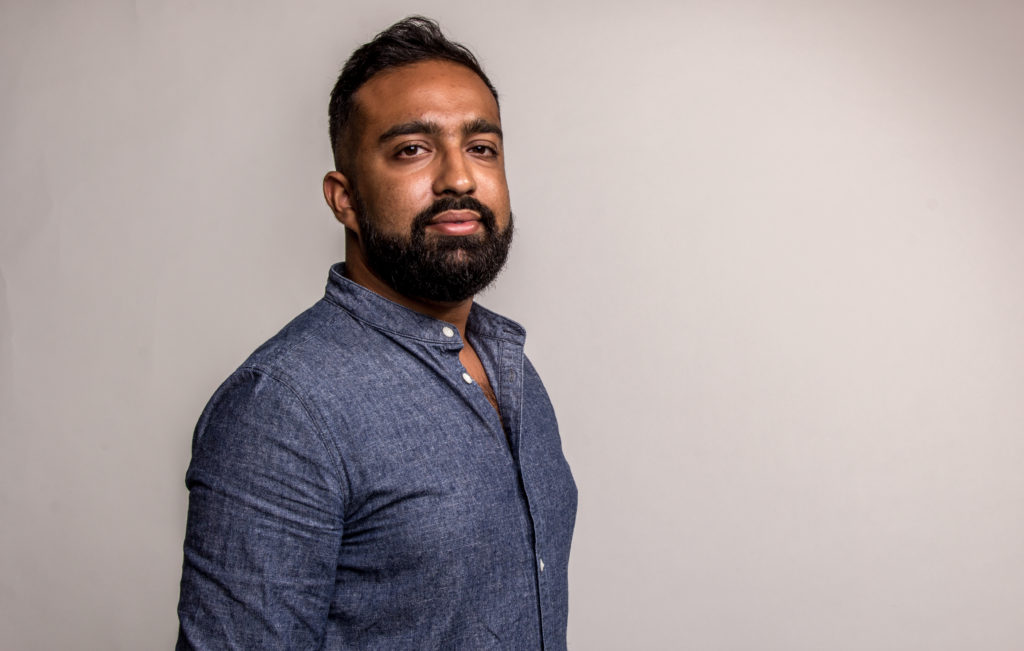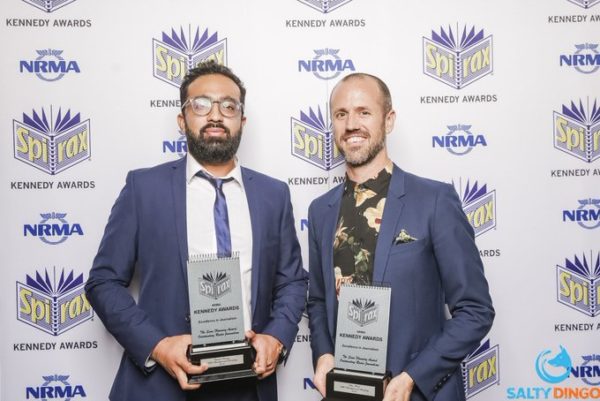Osman Faruqi is a journalist, writer and editor. He is the editor of 7am, the daily news podcast of The Saturday Paper. He has worked as an editor at the ABC and was an award-winning reporter with the flagship audio documentary program Background Briefing. He presents on the ABC TV’s arts and culture program The Mix, and was previously News and Politics Editor at Junkee.
He spoke to us about the ethical, and practical challenges of producing a daily news podcast; and about his interests outside of news that inspire his journalistic processes.

What is your favourite part of working for 7am?
Definitely the team. Our producers all have slightly different skills, strengths and interests, so it’s really rewarding to see everyone work together and help make our stories come to life. On top of that, I think it’s a real privilege to work on a daily news podcast. People wake up to us everyday because they trust us to help explain what’s going on. It’s pretty humbling and super rewarding.
How has working for 7am been different to reporting with the Background Briefing?

The timelines. At Background Briefing I’d have at least six weeks to work on one, 40 minute length feature. That meant I could uncover stories that took a lot of digging and investigative work. It means you have the space to get the best interviews, and plenty of time for writing and editing.
At 7am we put together a 15 minute episode everyday. That doesn’t mean the quality is worse, we just focus on different things. We prioritise explaining rather than breaking the news (though we have done the latter also!).
When you finish a story at Background Briefing you normally take a bit of time off to recover. At 7am, it doesn’t matter how long into the night you had to work, the next day you get to do it all over again.
What is the biggest challenge about working at 7am?
Making sure you’re telling the most important story. There’s so many things happening in Australia and around the world, and every day we make decisions about what to cover and what not to cover. We want to be relevant, but we also want to give stories attention that might have gone under the radar but we think deserve greater prominence.
It’s a hard balance to get right.
If we have the resources and trust to tell stories people listen to — we should use that to interrogate the folk whose decisions impact all of our lives.
What drives your investigative journalism?
Holding powerful people to account. I think that’s journalism’s most important function. It can, and should, do other things but that’s a core principle of news journalism in particular. If we have the resources and trust to tell stories people listen to — we should use that to interrogate the folk whose decisions impact all of our lives.
What piece of audio has had the most profound effect on you – as a listener, as an audio maker or both?
This might sound weird, but you did ask about audio not podcasts in particular … so I’m going to say My Beautiful Dark Twisted Fantasy by Kanye West. I think it might be the single best use of the medium to create a soundscape and spin a narrative.
What’s the best (or worst) advice you’ve received about investigative and news podcasting?
The best advice I’ve received is to consume as much as possible of what’s out there. You might learn what to do and sometimes it’s equally as important to learn what not to do.
As an audio maker, what have been your biggest lessons so far?
Record everything! I don’t care if it means you have too much tape and editing is hard. Just do it. You’ll always be better off having more than less.
I think I’m pretty impatient and opinionated. But when I work I try and lean in the other direction.
Do you think the work you make reflects your personality? If so – in which ways?
I think it’s the opposite! I think I’m pretty impatient and opinionated. But when I work I try and lean in the other direction. I like to take my time telling a story, and canvass a broad range of views often to leave the listener with the information they need to make up their own mind.
What are you listening to at the moment?
The Connect by Shea Serrano and Jason Concepcion. It’s a dumb, movie podcast but I think Shea is one of the smartest and funniest culture writers out there and it’s a welcome respite from everything else going on in the world.
What’s your favourite Australian podcast, and why?
Finding Drago by Alexei Toliopoulos and Cameron James. It’s got everything a good podcast should have! Awesome storytelling, suspense, great talent and interviews, emotion and it leaves you satisfied.
What – if anything – do you think distinguishes Australian audio? What would you like to hear more of?
I think we could be less insular! Australians don’t just have to focus on Australia. We should feel more comfortable engaging with big news and cultural events that happen in other parts of the world and looking at through our lens.
If you could go out to dinner with any audio maker, who would it be – and what would you talk about?
Almost definitely Song Exploder‘s Hrishikesh Hirway. We’d talk about music, what else?!
What’s next?
I’m writing a book about race and politics at the moment … there will be an audiobook, so stay tuned!